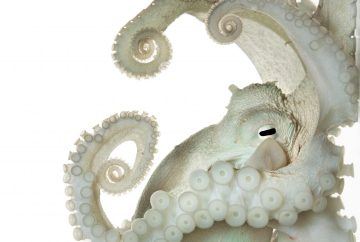by Jerry Cayford

The Vegetarian Fallacy was so dubbed by philosophy grad students in a well-oiled pub debate back in the 1980s. There is a fundamental conflict—so the argument went—between vegetarians and ecologists. The first principle of ecology—everything is connected to everything else (Barry Commoner’s first law)—is incompatible with the hands-off, “live and let live” ideal implicit in ethical vegetarianism. The ecologists took the match by arguing that, pragmatically, animals either have a symbiotic role in human life or else they compete with us for habitat, and those competitions go badly for the animals. In the long run, a moral stricture against eating animals will not benefit animals.
Now, pub debates are notoriously broad, and this one obviously was. A swirl of issues made appearances, tangential ones like pragmatism versus ethics, and central ones like holism versus atomism. In the end—philosophers being relatively convivial drinkers—all came to agree that pragmatism and ethics must be symbiotic as well, and that the practice of vegetarianism (beyond its ethical stance) could be more holistically approached and defended. Details, though, are fuzzy.
A fancy capitalized title like “Vegetarian Fallacy” may seem a bit grandiose, given the humble origins I just recounted. What justifies a grand title is when the bad thinking in a losing argument is also at work far beyond that one dispute. And that is my main thesis. So, although I will elaborate the two sides, it will be only a little bit. I am more interested in the mischief the Vegetarian Fallacy is perpetrating not in the academy but in wider political and cultural realms. Read more »

